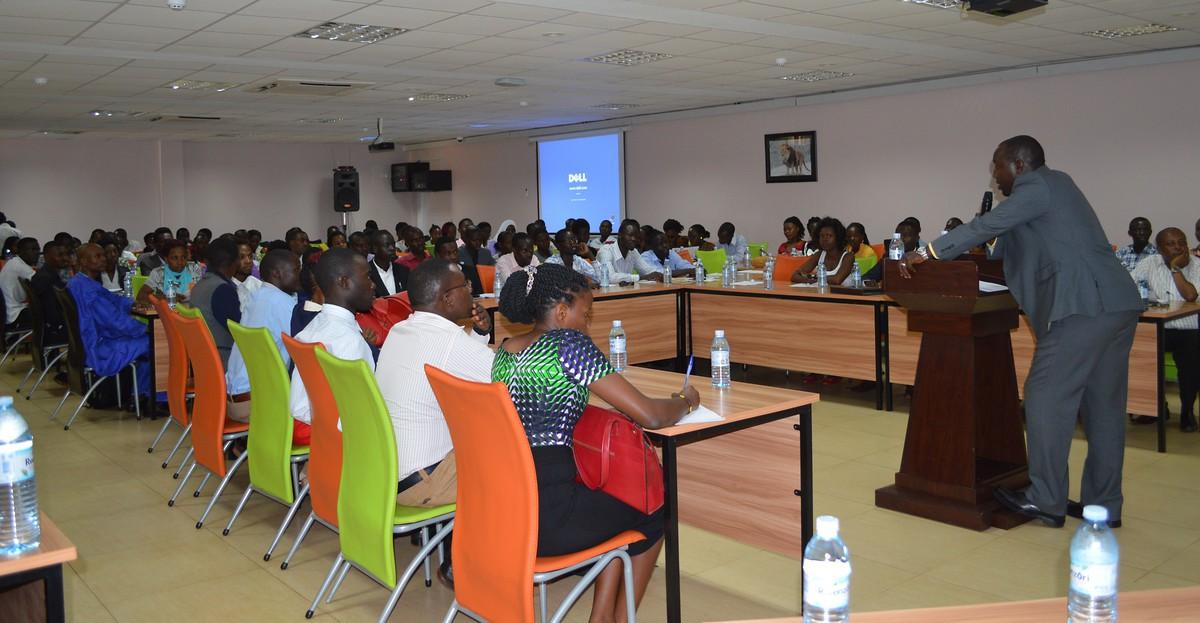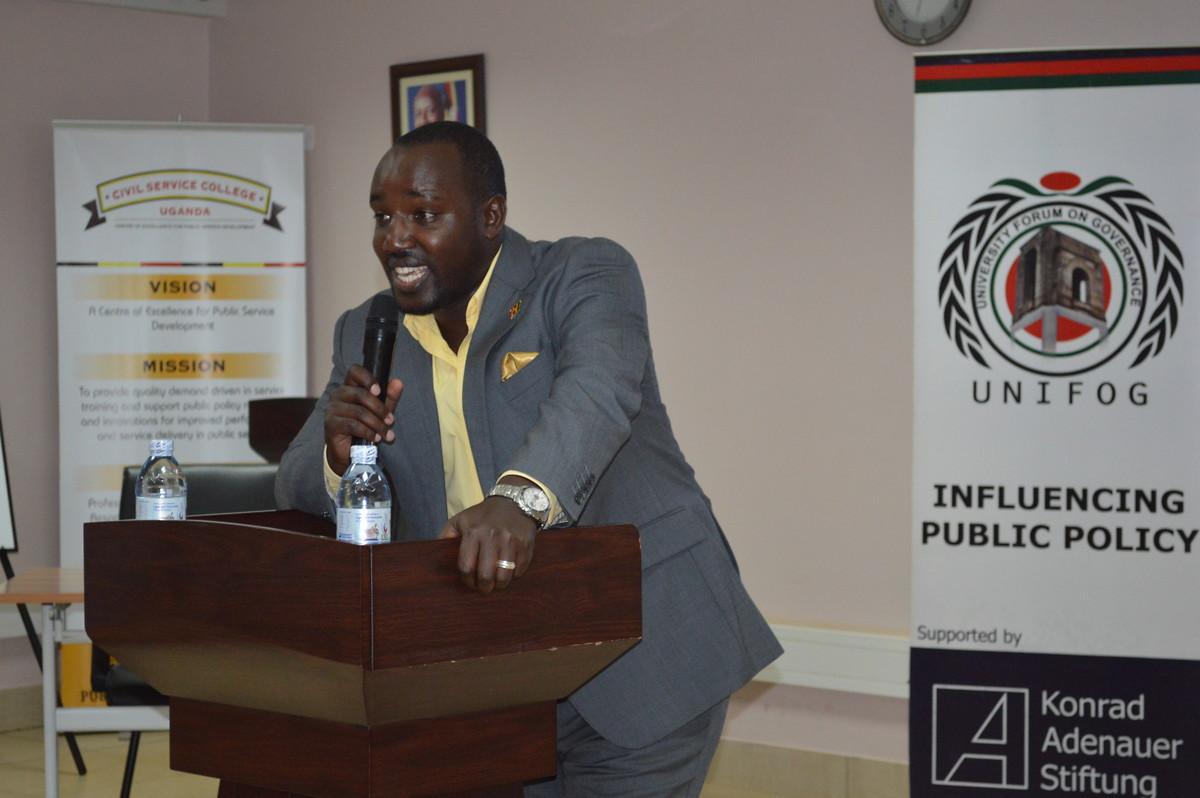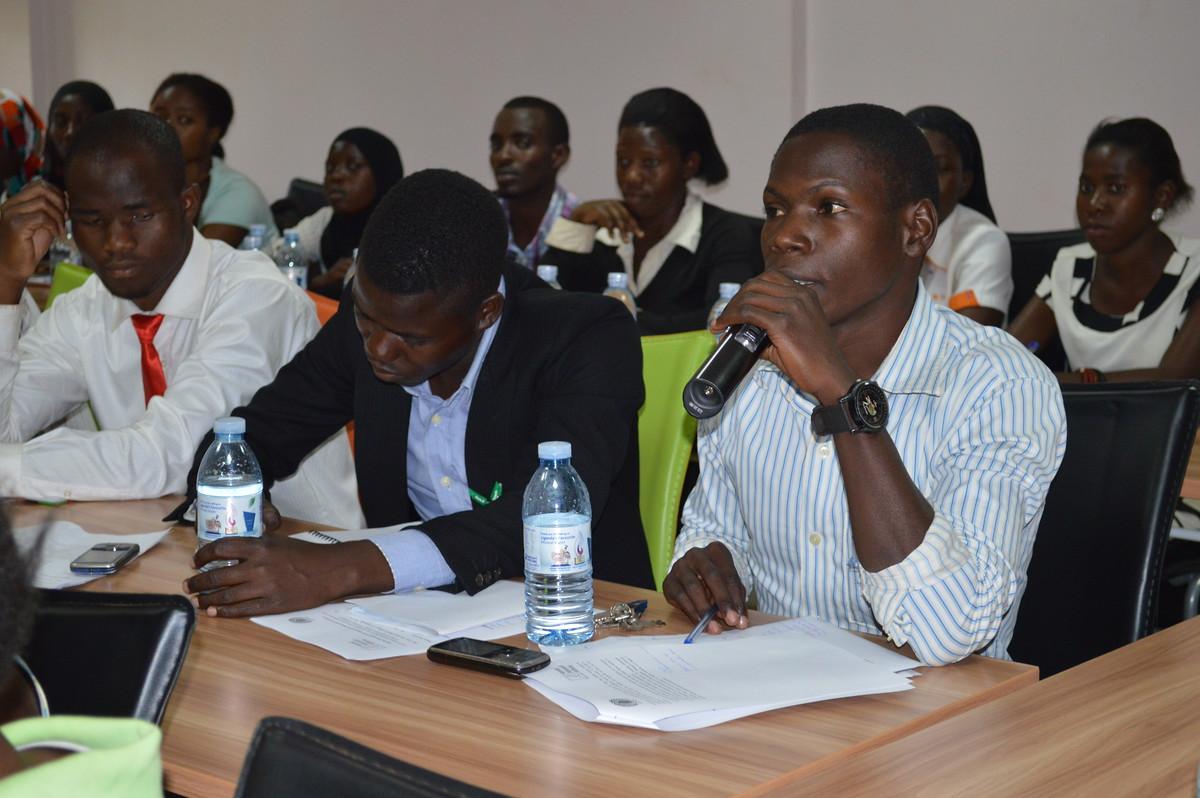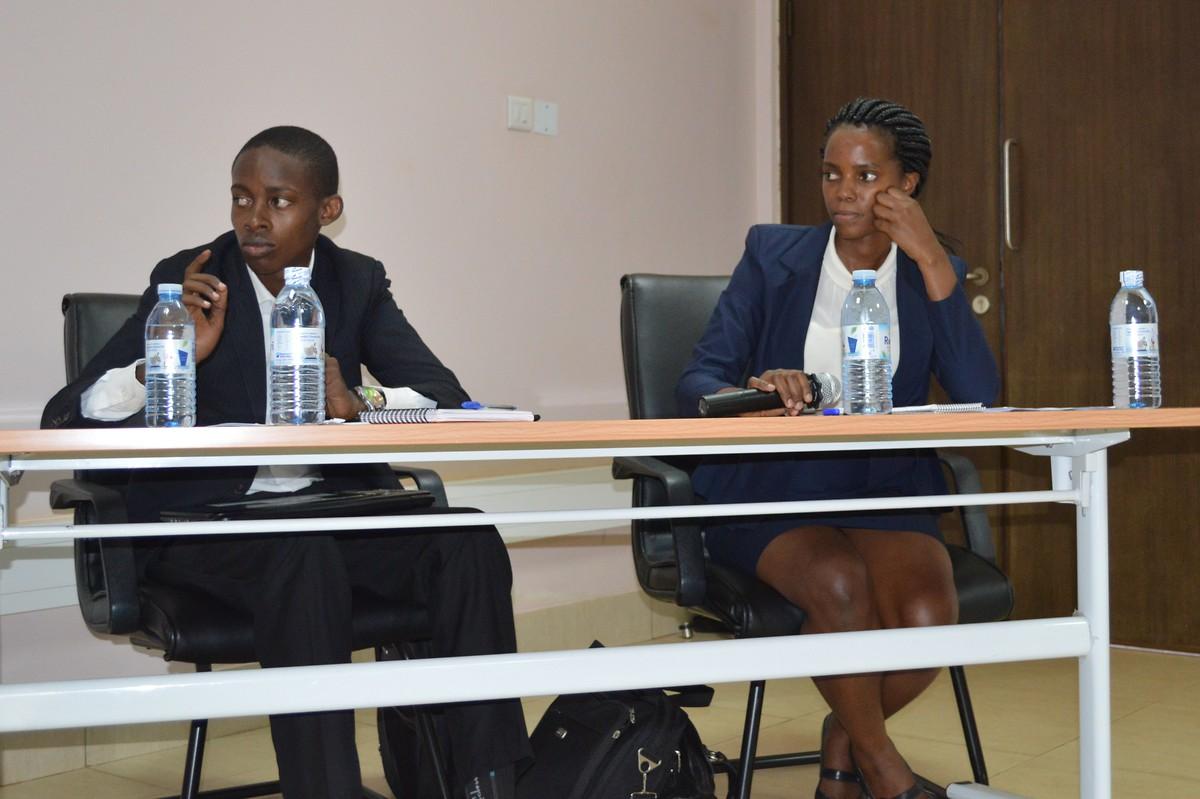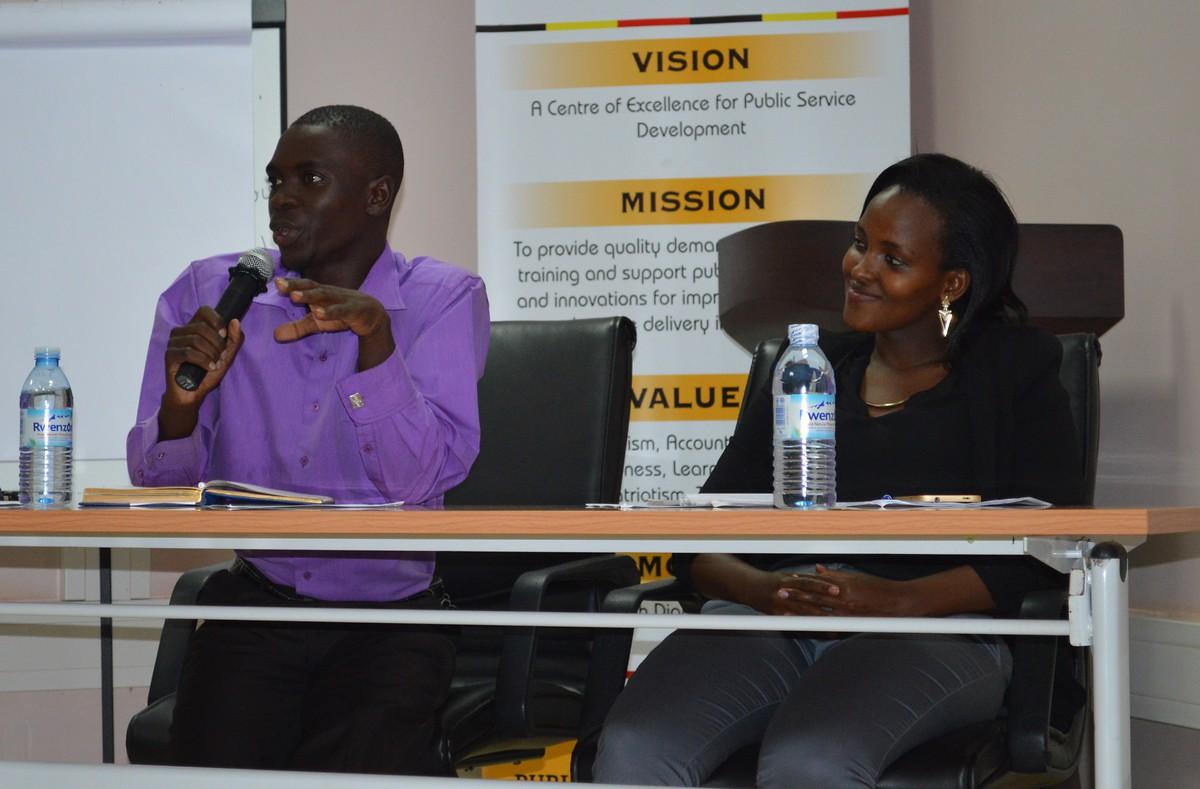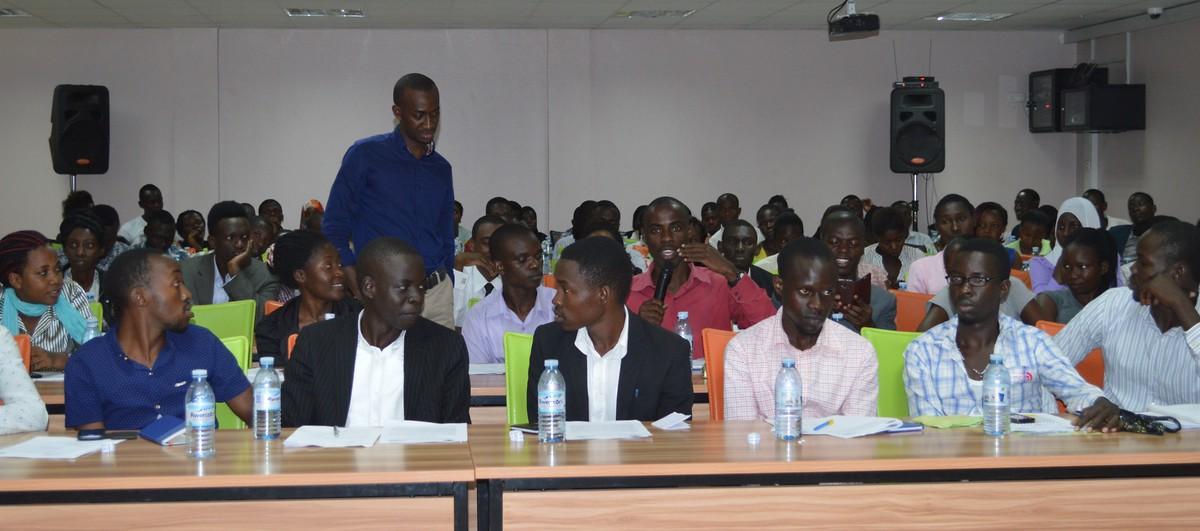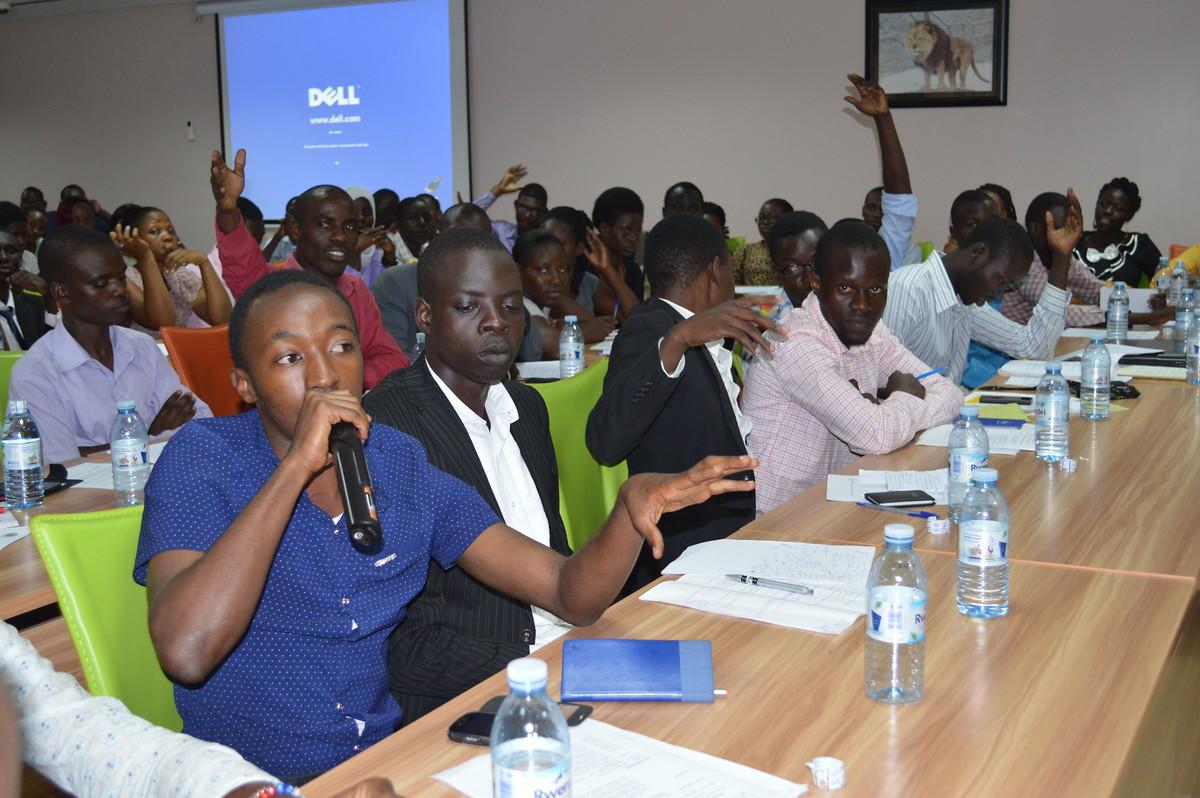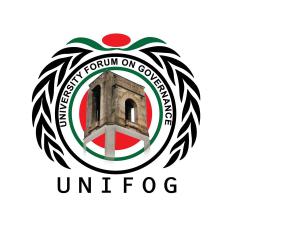Youth Need to Use Their Full Potential, Demand Debaters - Foundation Office Uganda and South Sudan
Event Reports
Although constitutional structures should ensure the political participation of youth, the youth fail to play an effective role in the political decision making process. A countrywide youth debate session aims to discuss why the youth is unable for a meaningful participation in democratic governance and what needs to be done to strengthen youth participation.
After some short welcoming remarks by Bruce Balaba Kabaasa, Associate Director of UNIFOG, and Awel Uwihanganye, Programme Officer at KAS, the panel discussion started. The panel consisted of four students from different fields: Mr. Ivan Rugambwa, Fourth Year Journalism Student, Ms. Martha Mulerwa, Fourth Year Biomedical Engineering Student, Mr. Brian Tushabomwe, Fourth Year Water Resources Engineering Student and Ms. Daphine Arinda, Last Year Law Student.
At first Mr. Yusuf Kiranda, Director of UNIFOG and moderator of the debate, focused on the topic of why youth are not in high political positions while youth representation structures like the National Youth Council exist. The panelists pointed out that there was a disconnection between the appointed youth representatives and the masses of youth who are not involved in formal structures: Most youth representatives had a better financial and educational background compared to the majority of youth. Moreover, the panelists noted poor accountability and leadership skills among the youth representatives.
To ensure lively discussions, Mr. Kiranda handed over to his co-moderator, Mr. Michael Mugisha, after every panel session and gave the audience a platform to formulate their comments, feedback and questions. The audience identified several reasons of the ineffective youth participation. On the one hand participants pointed out that youth in the rural area lacked civil education, on the other hand some argued that the youth was ignorant and not interested in political participation. A lecturer of Busitema University argued that the youth lacked economic democracy because they were not engaged in productive sectors, which gave them less power in the political decision-making process.
In the second debate phase the panelists discussed on who should be blamed for the difficult political position of the youth. The panelists mainly blamed the youth themselves or the government. Mr. Rugambwa made the case for a value-based youth movement that holds politicians accountable. Therefore, the youth should be financially independent from government funding. Other panelist agreed with Mr. Rugambwa and argued that some candidates only ran for political office because of the financial benefits they expected from that. Mrs. Arinda suggested teaching more patriotism in school in order to raise a new generation of accountable and transparent leaders.
The audience mainly agreed that the youth was not using its full potential to create a youth friendly environment due to the misuse of money, short time planning rather than investing in long term goals, and the low struggle for implementing alternatives.
Following the panel, the youth discussed unemployment and underemployment problem in Uganda which, according to them, reduced the effective capability of youth to participate in politics. The panel emphasized political, cultural and educational problems. First of all the government should identify promising sectors and provide infrastructure and policies which enable productive economic development and job creation. Therefore, in their opinion, a reformation of the current education system was needed to provide the required skills companies ask for. However, youth were not being trusted in the society and most companies asked for a minimum working experience of two years.
The debate ended with some suggestions to improve the current situation in fostering civil education, changing the parental and social mindset of youth, and concentrating existing youth engagements.
The Konrad-Adenauer-Stiftung would like to thank the panelists for their constructive input and the students for their participation and active engagement. The discussion gave a good insight into the challenges young people are facing when engaging in the political decision-making process.
Author: Nele Krüger, KAS Intern



